Peking Duck, or Peking Roast Duck is a famous duck dish from Beijing that has been prepared since the Yuan Dynasty, and is now considered one of China's national foods. The dish is prized for the thin, crispy skin, with authentic versions of the dish serving mostly the skin and a little meat, sliced in front of the diners by the cook. Ducks are bred specially for the dish, which after 65 days are slaughtered and seasoned before being roasted in a closed oven or a hung oven. The meat is often eaten with pancakes, spring onions, and hoisin sauce or sweet noodle sauce.
Related: Top 12 most popular Beijing Duck restaurants
4. Enjoy local snacks
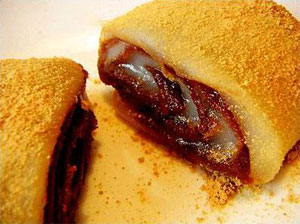
Beijing has a time-honored history of producing various kinds of snacks. With strong local flavors, Beijing's snacks fall into three varieties: Han, Hui and imperial snacks, which are generally prepared by steaming, deep frying, frying in shallow oil, and rapid boiling. Some people regard the snacks of Beijing as "social fossils." Snack restaurants such as the Longfusi and Huguosi snack counters can now be found all over Beijing.
Related: A pictorial of Beijing snacks and places to taste them.
5. Walk through the Panjiayuan Market
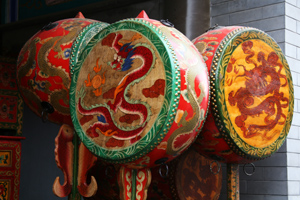
Situated west of Panjiayuan Bridge and south of the East Third Ring Road, the Panjiayuan Antiques Market is Beijing's most famous antique market, growing from its humble beginnings as a flea market in the early 1990s. All manner of antiques are on sale on the thousands of market stalls. Paintings, calligraphy, ceramics, jade, furniture, coins, army surplus, "cultural revolution" (1966-76) memorabilia, Buddhist artifacts and much, much more. If you are not an expert, simply wandering around the 40,000 plus stalls is just as much fun!
Click here for a online gallery of Panjiayuan antiques.
Watch video too.
6. Shop at Silk Market
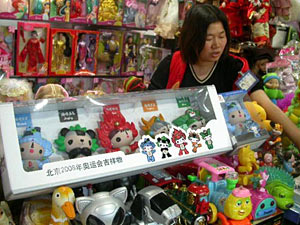
Described as "the third best-known tourist destination in Beijing after the Palace Museum and the Great Wall," Silk Street (aka Xiushui Market) attracts approximately 20,000 visitors daily (from 9am to 9pm) on weekdays and between 50,000 to 60,000 on weekends. This 35,000m² complex houses 1,700 retail vendors and over 3,000 salespeople spread over seven floors and three basement levels. Over the years many of the stalls have gained local and international notoriety for selling counterfeit luxury designer brands at relatively low prices. Some have continued this activity despite growing pressure from the management, the Chinese government, and famous name brand companies. Be prepared to bargain hard for the best price.
Open 09:00-21:00. Tel: 010 5169 8800.
Website: www.xiushui.com.cn/english
7. Biking in the city
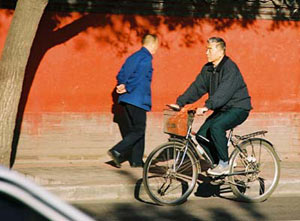
Biking through the streets of Beijing is a cool way to see the city. You can cycle at leisurely pace from site to site, stop for a local lunch, explore old alleys (hutongs) and become one with the Chinese in the bike lane. People chat as they cycle, often carrying oversize loads. Traffic jams will have little effect on you. During the 2008 Olympic Games a bike may be the ideal way to get around in Beijing.
Read more about bicycling in Beijing.
8. Worship at a local church
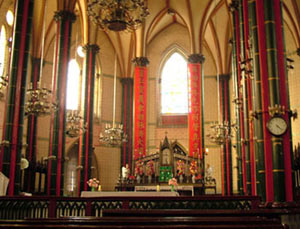
For many Christian visitors to Beijing, a downtown church provides not only a place of worship but also a good place to understand the religion's history in this vast Asian metropolis. With the Beijing Olympics under way, the main Catholic and Protestant churches in the Chinese capital are expecting an influx of foreign visitors looking for the unique experience of going to a local church.
Click here to see a full list of local churches.
9. Visit the Exhibition of National Treasures
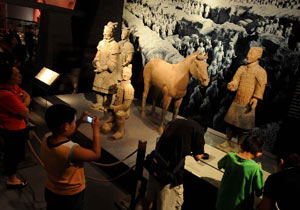
A rare gathering of some of the most splendid treasures illustrating China's long history promises to delight visitors to the Olympic city at the Capital Museum. The exhibition has gathered 169 of the best pieces from 55 museums across the country. The exhibits are the pick of the crop, and rarely if ever leave their home museums.
to get more travel info.